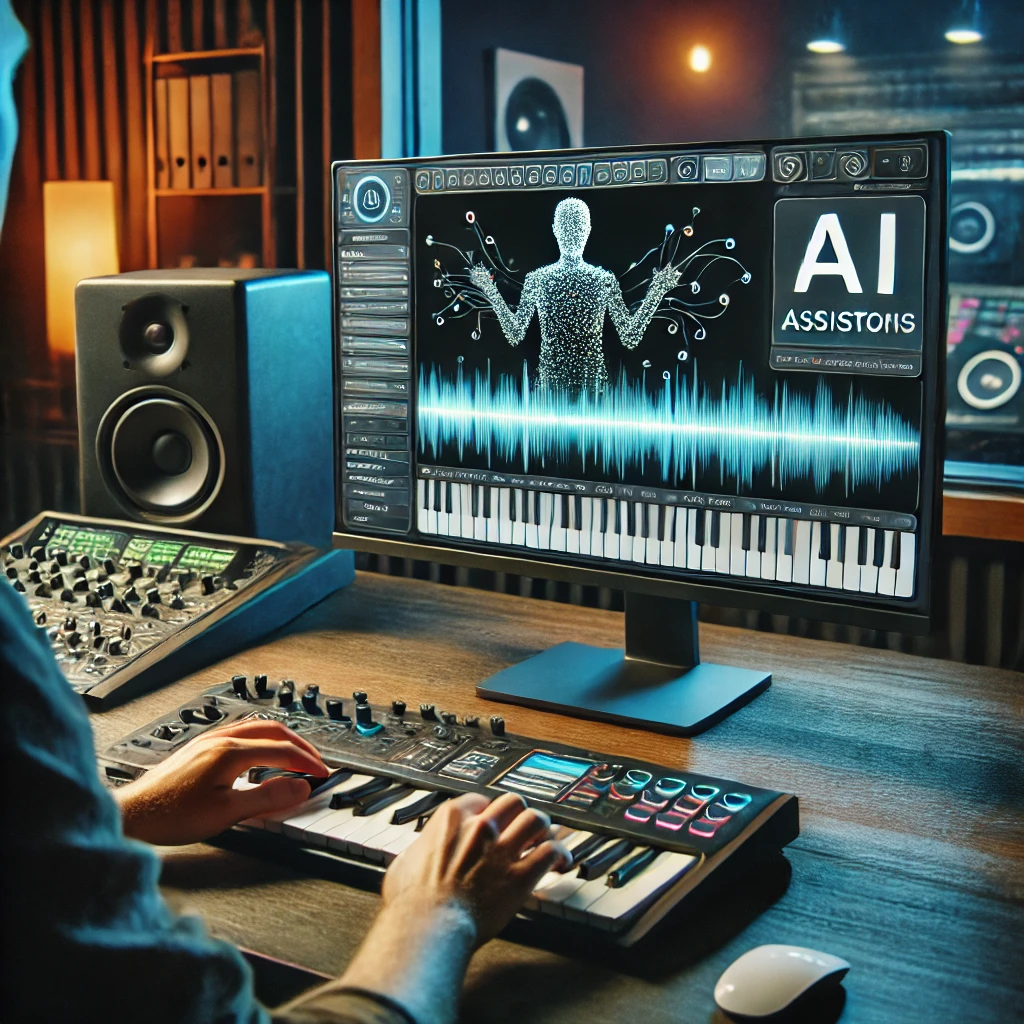Artificial Intelligence (AI) is making waves in the music industry, transforming the way music is composed, produced, and experienced. From AI-powered songwriting tools to fully generated compositions, AI is reshaping the creative process for artists, producers, and listeners alike. However, this technological revolution raises important questions about authenticity, copyright, and the future of human musicians.
This article explores how AI is being used to generate music, the benefits and challenges it brings, and what the future may hold for AI-driven creativity in the music industry.

How AI is Changing Music Creation
AI-generated music relies on machine learning algorithms that analyze vast amounts of existing compositions to create new melodies, harmonies, and beats. The most common AI techniques in music include:
1. Machine Learning and Neural Networks
AI models, such as OpenAI’s MuseNet and Google’s Magenta, use deep learning to study musical structures and generate compositions in various styles and genres. These tools can predict sequences of notes based on learned patterns from classical to contemporary music.
2. Generative AI for Music Composition
Generative Adversarial Networks (GANs) allow AI to create music that mimics human compositions. This method enables AI to produce unique, adaptive soundscapes tailored for different settings, such as video games, films, or meditation music.
3. AI-Assisted Songwriting and Production
Many musicians and producers use AI as a creative assistant. AI-powered tools like AIVA and Amper Music help songwriters generate chord progressions, melodies, and lyrics. Meanwhile, AI-based mastering platforms like LANDR improve production quality by automatically adjusting sound levels and effects.
Benefits of AI-Generated Music
AI offers several advantages to musicians, producers, and the industry as a whole:
1. Enhancing Creativity
AI does not replace human creativity but serves as a tool that expands musical possibilities. Artists can experiment with AI-generated melodies, beats, and harmonies to inspire new compositions.
2. Faster and More Affordable Music Production
AI-driven tools reduce the time and cost of music production by automating tasks like mixing, mastering, and sound design. This makes professional-quality music more accessible to independent artists.
3. Personalized and Adaptive Music Experiences
AI is revolutionizing the way people experience music. Streaming services like Spotify and Apple Music use AI to analyze user preferences and recommend personalized playlists. AI-generated adaptive music also enhances experiences in gaming, fitness, and relaxation apps.
4. New Revenue Streams
With AI-generated music, businesses and content creators can license custom-made tracks without the high costs of traditional composers. AI-generated background music is becoming popular for podcasts, videos, and commercials.
Challenges and Concerns
Despite its benefits, AI in music raises significant concerns:
1. Impact on Human Musicians
Many fear that AI-generated music could replace human musicians, especially in commercial music production. If AI can create film scores, background music, or even pop songs, what happens to composers and session musicians?
2. Lack of Emotional Depth
Music is deeply personal, often reflecting human emotions, experiences, and cultural influences. While AI can generate melodies, it cannot replicate the raw emotion and storytelling that human musicians bring to their craft.
3. Copyright and Legal Issues
One of the biggest challenges is determining ownership of AI-generated music. If an AI system creates a song, who owns the rights—the user, the developer, or the AI itself? Existing copyright laws do not yet fully address these concerns, leading to potential legal disputes.
4. Ethical and Authenticity Issues
Should AI-generated music be disclosed to listeners? Some argue that AI-generated music should be labeled to differentiate it from human compositions. Transparency in AI-generated content is crucial to maintaining trust within the industry.
The Future of AI in Music
As AI technology evolves, its role in music will continue to grow. Here’s what the future may hold:
- AI-Human Collaborations: AI will become a co-creator, helping musicians explore new styles and ideas rather than replacing them.
- AI-Powered Personalization: AI may generate custom music tailored to individual listeners, adapting in real-time based on mood or activity.
- Legal and Ethical Frameworks: New regulations will emerge to define copyright ownership and ensure fair compensation for human artists.
- Improved AI Creativity: AI models will develop a deeper understanding of musical expression, leading to more sophisticated and emotionally resonant compositions.
Conclusion
AI-generated music is transforming the music industry, offering exciting possibilities while raising important ethical and legal questions. While AI can enhance creativity and efficiency, it is unlikely to replace human musicians entirely. Instead, the future of music will likely be a blend of human artistry and AI-driven innovation, pushing the boundaries of what’s possible in musical expression.
The key to navigating this revolution is finding a balance—leveraging AI as a tool while preserving the unique emotional depth and authenticity that only human musicians can bring.

You must be logged in to post a comment.